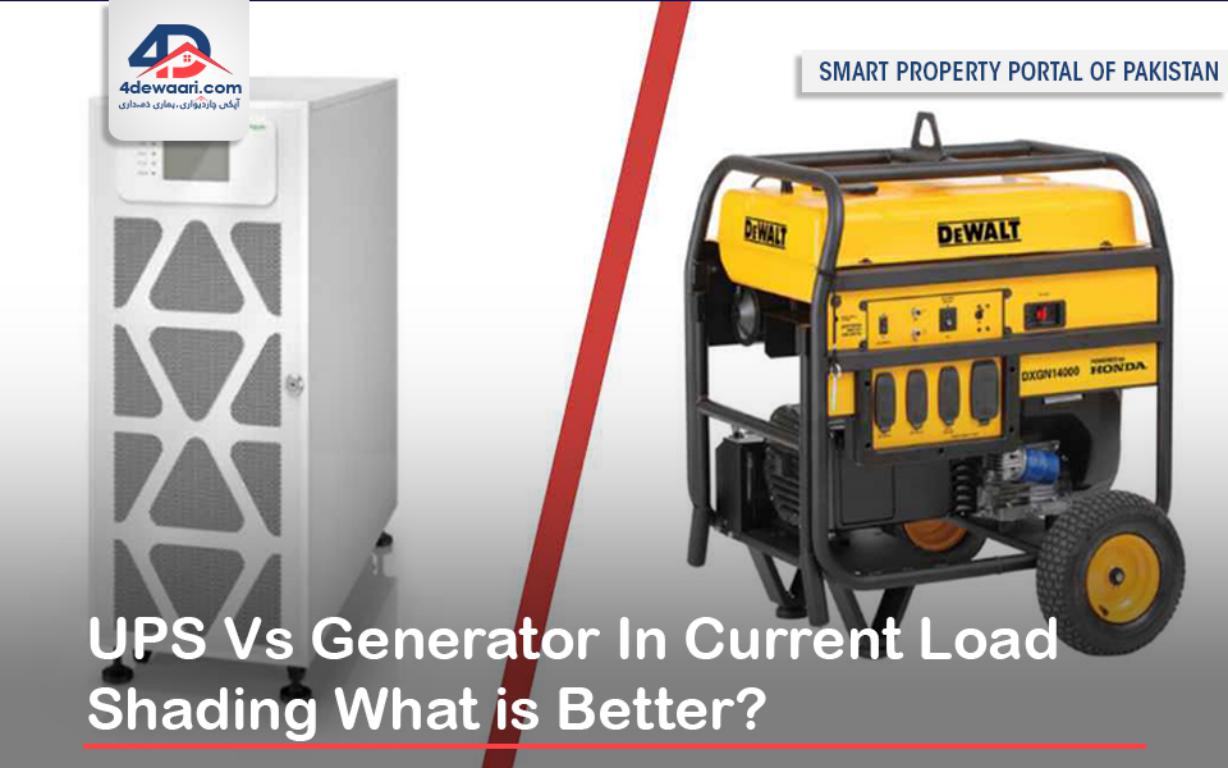Pakistan is experiencing severe load shedding, which has left inhabitants without power for 16 hours. Residents of various towns in Pakistan's Punjab province, including Lahore, Multan, and Gujranwala, came to the streets protesting the province's long-awaited energy load-shedding. A media source indicated on Saturday that Pakistan will increase its hydroelectric production in the next 7 years to satisfy its recurring power shortage and solve skyrocketing electricity rates, amid a growing energy crisis that has resulted in over 10 hours of load-shedding in the country. By 2028-29, the Water and Power Development Authority (WAPDA) has designed a plan to increase the current 9,406 megawatts (MW) to 20,591 MW. But right now electricity shortage remains a problem. The point arises that how to deal with this load-shading and What is better generator or UPS? in current load shading.
Current Load Shading State:
Power outages are a common annoyance, especially in third-world countries like Pakistan. Frequent power outages have an equal impact on people and organizations. For the duration of load shedding, residents in these areas are primarily reliant on temporary solutions. People commonly choose between two options: generators or UPS, depending on their budget.
Pros of Generator:
Generators are lightweight and may be taken with you wherever you go. Despite their size, they are typically mounted on wheels and may be moved easily. Generators do not require any additional wiring or installation to operate. . Turn off the mains, turn on the generators, and connect it into any accessible socket. A switcher, on the other hand, may be necessary if you have a scattered connection or have elected to install an Automatic Transfer Switch (ATS). Generators with high kVA ratings can readily power large appliances like deep freezers, refrigerators, and motors. This is unquestionably a critical characteristic in areas where load shedding occurs on a regular and unscheduled basis. These pros can help you to identify what goes well with your needs and Can a UPS replace a generator?
Ups:
Keeping foods and water refrigerated might be difficult if you don't have a generator and are subjected to frequent outages, especially during these hot months when temperatures have surpassed decade-old records. Natural gas or gasoline are used to power generators. Despite the fact that petrol is more efficient and extends the life of the generator's mechanical components, it is more costly than gas. Gas, on the other hand, is inexpensive; but, if it is not included out of the box, you may need to attach a gas kit. The majority of gas kits are inexpensive and may be installed in as little as 10-15 minutes.
Cons of Generator:
Generators are quite loud, and even if they can power most of your home's devices and appliances, you won't be able to get a good night's sleep while they are operating. Because of its noise, a generator will make things even more stressful and frustrating if you live in a small house or apartment. The inverter generator is a quieter but more expensive choice. If you can afford it, buy them. Generators are mechanical devices that are powered by even more mechanical devices. They necessitate routine maintenance and oil changes, both of which come at a cost. You'd have to check the oil periodically because running the engine with insufficient oil can permanently damage the engine and void the warranty.
A generator is an expensive alternative due to its cost and upkeep, and running it on gas may shorten its life, cause performance degradation, and result in frequent breakdowns. Keep in mind that gas corrodes mechanical parts like valves, reducing the lifespan of your generator. If the generator is run on gas, some manufacturers will reduce or even nullify the guarantee. Generators not only make a lot of noise, but they also produce hazardous fumes that are bad for the environment and can be fatal if ingested. Manual starting and closing becomes a chore if an Automatic Transfer Switch (ATS) is not installed.
Pros of UPS:
Power backups are provided by a UPS. There is no noise, and when the power goes off, they give automatic power backup. These are much less expensive than generator, and they really do not demand regular maintenance. A UPS's battery is the most crucial component. If the battery is of good quality, it will extend the UPS's life and ensure uninterrupted backup. They are less likely than generators to damage your electronic appliances. Your data and servers are more secure with UPS systems since there is a lag period. They are more eco-friendly and environmentally compatible than generators because they basically function as a big battery system and do not burn any fuels. They are less expensive than generators.
Cons of UPS:
One of the most significant disadvantages of UPSs is that they are not designed to power large appliances. Fans and lights are the only appliances that should be turned on. If you reside in an area where there is a lot of load shedding, UPS is not the best option. UPSs are ideal for places where power outages are expected to last an hour or two. Low-quality or inferior batteries may necessitate regular battery liquid refilling. Do consider about the batteries of UPS as they disturb a lot in load shading so be careful in deciding what to buy, a UPS or a generator. The battery is the most expensive part of the UPS, and you'll have to change it every 5-6 months if you use a small battery.
What to opt?
UPS systems, we believe, are better for middle-class people, whereas generators are more reliable for businesses. However, using both alternatives for your home/business is a preferable option. Both UPS and generators have their own set of advantages and disadvantages. However, combining both of these incredible technologies is the best solution we can think of. In conclusion, when the point comes to choose between a UPS and a generator you should always look at your budget. Other than that, both are beneficial for use.















